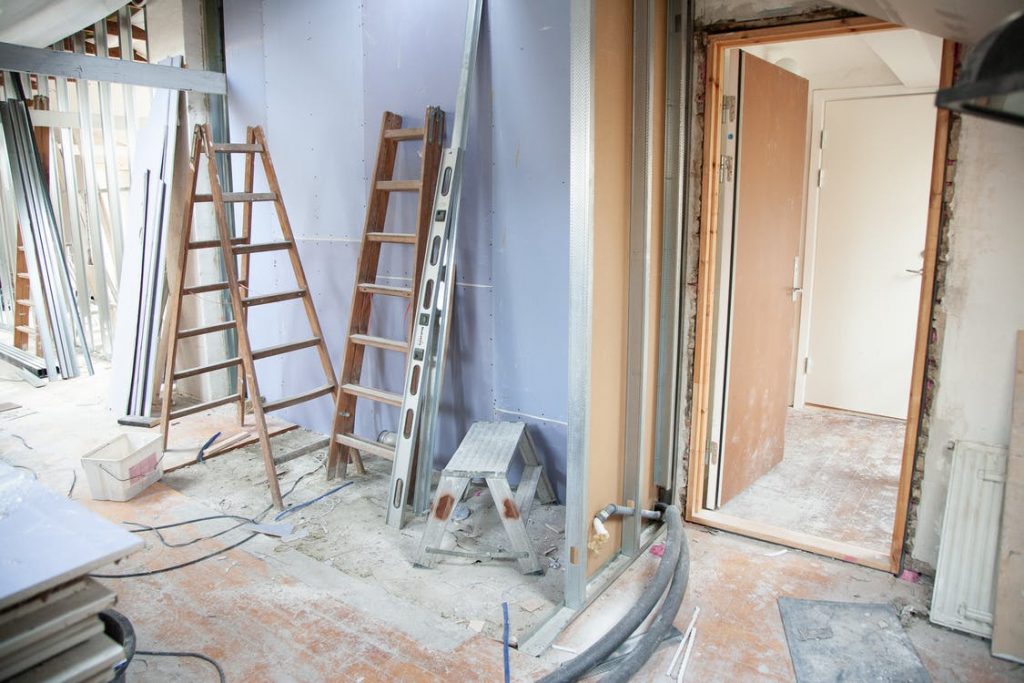While a home warranty does not cover everything in a home, it covers many major systems and appliances. These include the HVAC system, water heater, electrical system, plumbing system, refrigerator, oven, dishwasher, washer and dryer. Some home warranty companies also offer coverage for pools and spas, as well as guest houses or other structures on the property.
Homeowners should read their home warranty contracts carefully before signing up for coverage. They should also be aware of any exclusions or limits to coverage. For example, some policies exclude pre-existing conditions or damage caused by negligence. Choosing a reputable home warranty company with a good track record for customer satisfaction is also essential.
What is a Home Warranty?
A home warranty is a service contract that covers repairing or replacing home systems and appliances that break down due to normal wear and tear. It typically lasts for one year and can be renewed annually. Home warranties are not mandatory, but they can provide peace of mind to homeowners by protecting them from unexpected repair bills.

How to Choose a Home Warranty
A home warranty is a service contract that covers the repair or replacement of major home systems and appliances. Home builders and real estate developers usually offer home warranties as an incentive to purchase a new home, but existing homeowners can also purchase them.
There are several factors to consider when considering whether or not to purchase a home warranty. Not all home warranties are created equal, so it’s essential to do your research before choosing a plan. Here are some factors to consider when selecting a home warranty:
- Coverage: What does the plan cover? Most plans will cover your heating and cooling system, plumbing, electrical wiring, water heater, and major appliances such as your refrigerator, oven, dishwasher, and washer and dryer. Some plans also offer coverage for pools, spas, jetted tubs, and other built-in features. Make sure the plan you choose covers everything you want it to.
- Cost: Home warranty plans typically cost between $250 and $600 per year. The price will depend on the coverage level you choose and the deductible (the amount you have to pay out of pocket when you make a claim).
- Network: Does the company have a network of qualified contractors in your area? When you need to use your home warranty, the company will send out one of its contractors to fix the problem. Make sure there are contractors near you that can provide quality service promptly.
- Reviews: Read reviews of different home warranty companies before making a decision. Look for companies with high customer satisfaction ratings and positive reviews from customers who have used their services.
The Best Home Warranty Companies
When it comes to finding the best home warranty company, there are a few things you need to consider.
- First and foremost, you’ll need to ensure that the company is reputable and has a good track record. There are a lot of fly-by-night companies out there, so you’ll need to do your due diligence to find the best one.
- Second, you’ll need to ensure that the company offers a good selection of plans and coverage options. You should be able to find a plan that fits your needs and budget.
- Finally, you’ll need to ensure that the company has good customer service. You don’t want to be stuck with a company that’s hard to get in touch with or doesn’t handle claims well.
Once you’ve considered all of these factors, you should have no trouble finding the best home warranty company for your needs. Make sure to compare different companies and plans before making your final decision.
- Choice Home Warranty
- American Home Shield
- The Home Service Club
- Cinch Home Services
- ServicePlus Home Warranty
- Select Home Warranty
- Liberty Home Guard
Choice Home Warranty
Choice Home Warranty is a popular option, but weighing the pros and cons before deciding is essential.
PRO: You can get coverage for preexisting conditions. Many home warranty companies won’t cover preexisting conditions, but Choice Home Warranty will. This is a big pro if you’re worried about being stuck with expensive repairs down the line.
CON: You have to pay a service fee for every call. With Choice Home Warranty, you have to pay a $60 service fee every time you need to use your coverage. This can add up quickly, especially if you have multiple issues arise in a short time.
PRO: There is no waiting period for coverage to start. Other home warranty companies make you wait 30-90 days for your coverage to start, but your coverage begins immediately after purchase with Choice Home Warranty. This is great if something goes wrong soon after buying your plan.
American Home Shield
American Home Shield is one of the leading home warranty companies in the United States. It has been in business for over 40 years and offers a variety of home warranty plans to suit different needs. American Home Shield also has a good reputation for customer service and claims.
However, there are some downsides to American Home Shield.
- Firstly, it is not available in all states.
- Secondly, the company has been known to cancel policies for customers who make too many claims or who have properties that are considered high-risk.
- Finally, American Home Shield does not cover Lennox air conditioners or Trane furnaces, two of the most popular brands on the market.
The Home Service Club
The Home Service Club is a membership club that provides its members home maintenance and repair services. The club has been in business for over 20 years and has a good reputation. However, there are some pros and cons to consider before joining the club.
One of the pros of the Home Service Club is that it can save you money on home repairs. The club bulk-buys materials at discounted prices and passes these savings on to its members. They also have a team of experienced handymen who can do small jobs quickly and efficiently. This can save you time and money if you need help with odd jobs around the house.
Another pro is that the Home Service Club offers peace of mind. If something goes wrong in your home, you can call the club, and they will send someone out to fix it. This can be very helpful if you live in an old home or have appliances prone to breaking down.
However, there are some cons to consider as well. One of these is that the Home Service Club is not available 24/7. You will need to find another solution if you have an emergency outside regular business hours.
Another con is that the club does not cover significant repairs or renovations. So if your roof needs fixing or your kitchen needs a complete overhaul, you will need to find another contractor.
Cinch Home Services
You should know a few key things before signing up for Cinch Home Services. First, their customer service is top-notch, and they’re always available to help with any issues you may have.
However, they’re not the cheapest option, and their fees can add up quickly if you’re not careful. Some of their services (like housekeeping) also require an additional fee per visit. Overall, Cinch Home Services is an excellent option if you can afford it and you’re looking for reliable, high-quality home service providers.
ServicePlus Home Warranty
When it comes to home warranties, there are many options out there. So, how do you know if ServicePlus is your right choice? This article will discuss the pros and cons of ServicePlus home warranties so you can make an informed decision.
PROS: – One of the most significant benefits of a ServicePlus home warranty is that it can save you money on repairs and replacements. – With a ServicePlus home warranty, you have access to a network of pre-screened contractors who can help with everything from HVAC repairs to fixing a leaky faucet. – ServicePlus home warranties cover major appliances like your refrigerator, oven, and washing machine.
CONS: – One downside of ServicePlus home warranties is that they may not cover pre-existing conditions. – Another potential drawback is that some people find the service fees associated with ServicePlus home warranties high.
All in all, Service Plus seems like a decent Home Warranty company. But as with any company, there are some things you should consider before signing up for one of their plans. It’s always important to read the fine print and understand what is covered (and not covered) in your contract.

How Do Home Warranties Work?
When you purchase a home, you want to protect your investment. A home warranty can help give you peace of mind by protecting the cost of repairs or replacements of major systems and appliances that break down due to normal wear and tear.
A typical home warranty plan provides coverage for one year and can be renewed annually. Coverage may vary from plan to plan, but most home warranties cover the repair or replacement of essential systems and appliances, such as air conditioning, heating, electrical wiring, plumbing, water heaters and more.
Contact the home warranty company to request service if something breaks down during the covered period. The company will then dispatch a qualified contractor to make the necessary repairs.
While a home warranty is not required when you purchase a home, it can be a valuable asset — particularly if you are buying an older home with some aging systems and appliances. By having a home warranty in place, you can avoid unexpected repair bills should something go wrong.
Who Needs a Home Warranty?
Just about everyone! Whether you’re a first-time homebuyer or you’ve been through the process before, a home warranty can give you peace of mind knowing that your home is covered against unexpected repairs.
A home warranty can be essential if you’re a first-time homebuyer. Not only are you likely unfamiliar with how to maintain and repair a home, but you may also be working with a tight budget. A home warranty can help protect you from expensive repairs that come up unexpectedly.
A home warranty can still be beneficial even if you’re not a first-time buyer. No matter how well maintained your home is, there’s always the potential for something to go wrong.
A broken appliance or plumbing issue can quickly become expensive to fix. With a home warranty, you won’t have to worry about these unexpected repairs putting a dent in your budget.
What do Home Warranties Cover?
A home warranty is a service contract that helps homeowners cover repair or replacement costs for many standard home systems and appliances.
Most home warranties cover significant components of the home, such as the HVAC system, electrical system, plumbing system, and major appliances. Some home warranties also offer coverage for swimming pools, hot tubs, and other outdoor features.
While home warranties can be a great way to budget for unexpected repairs and replacements, it’s essential to understand what they do and don’t cover. For example, most home warranties will not cover damages caused by normal wear and tear, intentional damage, or neglect.
If you’re considering purchasing a home warranty, read the fine print to know what is and isn’t covered.
What is Not Covered by a Home Warranty?
One common misconception about home warranties is that they cover everything that goes wrong with your home. In reality, however, most home warranties do not cover several things. Here are some of the most common exclusions:
- Normal wear and tear: Home warranties generally don’t cover items worn out over time due to regular use. For example, if your refrigerator breaks down after 15 years of use, it will probably not be covered by your home warranty.
- Cosmetic damages: Home warranties also generally don’t cover cosmetic damages, such as scratches on your hardwood floors or dings on your walls.
- Pre-existing conditions: If you have a pre-existing condition in your home when you purchase your home warranty, it’s unlikely to be covered under the terms of the policy. For example, if you have a leaky roof when you buy your policy, any damage caused by that leak will not be covered.
- Open perils vs. named perils: Most home warranties are “named peril” policies, which only cover damages caused by specific events or problems listed in the policy. “Open peril” policies are much less common and tend to be more expensive, but they offer broader protection since they cover all risks except those expressly excluded in the policy.
Primary Issues with Home Warranties
As a homeowner, you are likely aware that things can and will go wrong with your home. From the roof leaking to the furnace breaking down, something always seems to need repair or replacement.
Homeowner’s insurance can help to offset the cost of some of these repairs, but it typically does not cover everything.
While this coverage can be beneficial, there are also some potential drawbacks that you should be aware of before deciding if a home warranty is proper for you.
One of the primary issues with home warranties is that they often come with fine print. It means that there may be certain items or conditions that are not covered by your contract. It is essential to read through your contract carefully to understand what is and is not covered before signing anything.
Another potential problem with home warranties is that they can be pretty expensive. The contract cost will depend on several factors, such as the size of your home and the type of coverage you desire. Sometimes, the monthly premium for a home warranty can be nearly as much as your mortgage payment!
Before deciding whether to purchase a home warranty, it is essential to research and weigh all the potential pros and cons. By taking the time to do this now, you can help ensure that you make the best decision possible for your situation.

Are Home Warranties Worth It?
When it comes to home warranties, there are a lot of different opinions out there. Some people swear by them, while others think they’re a waste of money. So, what’s the truth? Are home warranties worth it?
You should keep a few things in mind when trying to answer this question. First, what is a home warranty? A home warranty is a service that provides repairs or replacements for certain items in your home, like your HVAC system or appliances.
Typically, these services come at an annual price tag of around $500-$600.
So, are they worth it? That depends on a few factors. For instance, how old is your home? If you live in an older home, you’re more likely to need to use your warranty than if you live in a brand new home.
Additionally, do you have any pre-existing conditions in your home that may need attention? If so, a warranty can save you from having to pay for pricey repairs out of pocket.
Ultimately, whether or not a home warranty is worth it for you comes down to personal preference and circumstances. If you feel comfortable with paying the annual fee and think there’s a chance you might need to utilize the service, then it could be worth considering.
However, a warranty may not be necessary if you feel your home is unlikely to need any repairs or replacements anytime soon.

Home Warranty North Dakota
When you purchase a home, you want to be sure that it will be protected in case of unforeseen repairs or issues.
A home warranty in North Dakota can cover various things, from the electrical system to the plumbing. If something goes wrong with your home, you won’t have to worry about paying for the repairs yourself.
Your home warranty will cover the cost of repair or replacement, so you can focus on enjoying your new home.
If you’re looking for a way to protect your investment and give yourself peace of mind, consider getting a home warranty in North Dakota. It’s an affordable way to keep your home in top condition, no matter what happens.
Cheap Home Warranty
A cheap home warranty can be a great way to get peace of mind when it comes to your home. It can cover repairs or replacements of major systems and appliances and give you the peace of mind that comes with knowing you’re covered.
Though, there are a few things to keep in mind when shopping for a cheap home warranty.
- First, read the fine print and understand what is and is not covered.
- Second, compare different plans to find the best fit for your needs. And third, don’t forget to factor in the cost of any deductibles when considering whether or not a plan is affordable.
With some research, you can find a cheap home warranty that will give you the coverage you need without breaking the bank.
Home warranty companies usually offer home warranties, but some insurance companies and real estate firms also offer them.
Home warranties are distinct from homeowner’s insurance, which protects against damage from events such as fire, wind, and theft.
Homeowner’s insurance does not cover the costs of repairing or replacing major systems and appliances in the home that break down due to normal wear and tear. A home warranty covers these types of repair or replacement costs.
Most home warranties have a term of one year, although some companies offer terms of two or three years. Some companies also offer lifetime coverage for specific items.
Home Warranty with Free Security System
A home warranty with a free security system is an excellent way to protect your home. By signing up for a home warranty, you can ensure that your home is covered in the event of any unforeseen repair or replacement costs.
And, adding a security system to your home can give you and your family an extra layer of protection against potential intruders.
Many different companies offer home warranties with free security systems. Some companies require that you purchase their home warranty to receive the free security system. In contrast, others may offer the security system as an added perk for signing up for their home warranty.
Regardless of which company you choose, read the fine print carefully to understand all the terms and conditions associated with the home warranty and the security system.
Adding a security system to your home can provide peace of mind in knowing that your property is protected against burglaries and other crimes.
Many different types of security systems are available on the market today, so it’s essential to research to find one that best meets your needs. Be sure to compare several different brands and models before finding the perfect system for your budget and lifestyle.
FAQs
What is a home warranty?
A home warranty is a service that covers the repair or replacement of major systems and appliances in your home. A typical home warranty plan will cover items such as your HVAC system, electrical system, plumbing, and major appliances.
Why do I need a home warranty?
You might want to consider getting a home warranty for many reasons. First, if any of your covered items break down, repairing or replacing them can be very costly. A home warranty can help offset those costs. Second, a home warranty can give you peace of mind knowing that you’re covered if something goes wrong with your effective systems or appliances.
How much does a home warranty cost?
The cost of a home warranty varies depending on the coverage you choose and the company you purchase it from. However, most basic plans start at around $250 per year.
What is included in a home warranty?
Most home warranties include coverage for your HVAC system, electrical system, plumbing, and major appliances. Some companies offer additional coverage for pools, spas, and other outdoor features.
How do I know if I need a home warranty?
If you’re unsure whether you need a home warranty, you can talk to your real estate agent or another trusted advisor. They can help you weigh the pros and cons of getting a home warranty based on your specific situation.
What are the benefits of having a home warranty?
There are many benefits to having a home warranty, including peace of mind knowing that your major systems and appliances are covered in case of breakage. Home warranties can also save you money by offsetting the costs of repairs or replacements.
One of the main benefits of a home warranty is that it can save you money on expensive repairs or replacements. Another benefit is that it can give you peace of mind knowing that your major systems and appliances are covered in case they break down.
Some home warranty companies also offer coverage for things like pools and spas. This can be helpful if you have these features on your property, as they can be expensive to repair or replace.
Another benefit of a home warranty is that it can help you sell your home. If you have a home warranty in place, potential buyers will know that they won’t have to worry about costly repairs or replacements if something breaks down. This can give them peace of mind and make them more likely to purchase your home.
Finally, a home warranty can give you extra protection in an emergency. For example, if your HVAC system goes out in the middle of winter, a home warranty company will usually send someone out to fix it within 24 hours.
This can save you from having to endure a cold night without heat or paying for an emergency repair yourself.





